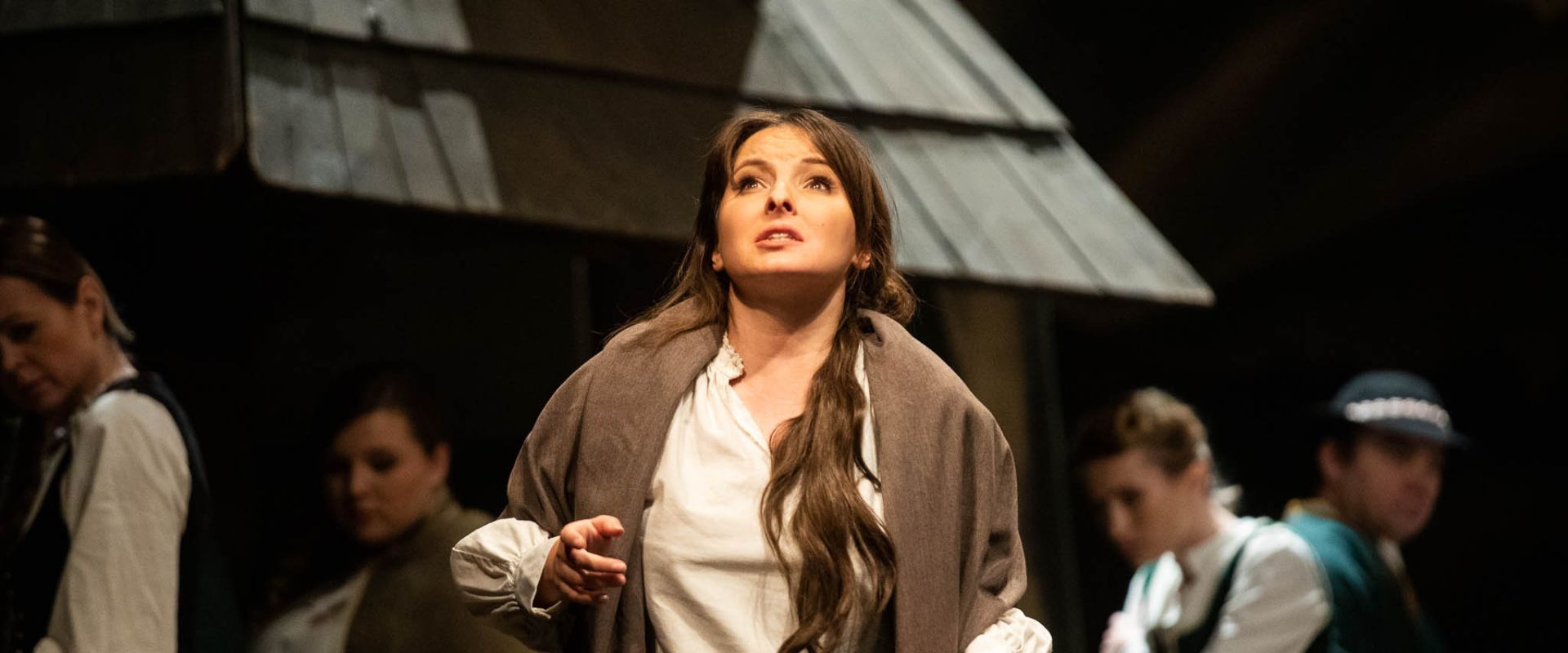 Five questions for… Natalia Rubiś during the 33rd Mozart Festival
Five questions for… Natalia Rubiś during the 33rd Mozart Festival
You have recently played Elettra in “Idomeneo” at the Warsaw Chamber Opera. The audience of the 33rd Mozart Festival will soon see you as Donna Elvira in “Don Giovanni.” What are the challenges of the above roles?
They are very powerful characters in Mozart’s repertoire. Each of the two roles has its own “pitfalls.” Obviously, I take a different approach to Donna Elvira – one of my favorite roles which I have performed for years, than to the part of Elettra which I will sing for the first time, in a revival of the performance. As a revival involves fewer rehearsals, I do not have the comfort of “bonding” with my character, maturing in the role, which is the case when you work on a new production. On the other hand, there is an incredible energy, focus and freshness. There is no room for routine, for playing emotions “by heart”, everything is real, shown for the first time. I hope it will make our story credible to the audience
Do you think Mozart should be performed in a traditional way – faithful to the libretto and the score, or adapted to contemporary times?
Beyond questions, Mozart should be performed authentically, we should seek truth in the libretto. The perception of certain social behaviors has certainly changed: something commonplace several hundred years ago arouses misunderstanding or opposition nowadays. Fortunately, there are universal values that have not changed over the years – we can all find slices of our lives in them. Therefore, it is incremental whether the production is contemporary or traditional. It has to be true. I do not agree with distorting the meaning of the text and the sense of words, I do not agree with “modernizing” Mozart by forcing it into the framework of “our times”. Let’s look for these universal truths, and whether the costumes and set design are traditional or contemporary… it is of secondary importance.
From your perspective, what is of paramount significance in these two productions staged by Michał Znaniecki?
Interpersonal relationships. And the approach to the characters. On the one hand, an individual perspective – the characters have their personal stories which they tell with gestures and through acting with their eyes. Then there is the global view, shown by emphasizing the relationships between the characters, their reactions to each other and the impact of their decisions on other drama participants and the world they live in. In Michał Znaniecki’s work, the most important thing is the truth – the leitmotif of his staging.
What role outside Mozart’s repertoire is closest to you and why?
Halka! Without a second thought. Halka is the part closest to my heart. I can personally relate to this girl from the mountains, because I come from Podhale, from Raba Wyżna, I even hold the title of “Wiyrchowa Orlica” (honorary title assigned for achievements in cultivating and popularizing local culture of the Polish highlands). While rehearsing for this role, I immediately felt I could bond with her and show her truth. Perhaps we used to look at similar landscapes, smell similar summer scents, taste similar wild blueberries and strawberries picked in the forest? I had danced and sung in a highlander folk band for over 10 years, which certainly stimulated my imagination and sensitivity.
What are your artistic dreams?
My artistic dreams have kept coming true, including the role of Elettra, and others waiting in line to come true. One of them is my debut as Benigna in Krzysztof Penderecki’s “Black Mask” at the Polish National Opera in November. It will be not only a great vocal challenge, but also an acting one, and I love the combination of the two the most!


